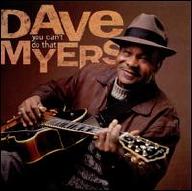The Windy City's first electric blues band, the group -- which next settled on the moniker the Three Aces -- quickly emerged as one of the most popular attractions on the local music scene, becoming a fixture at clubs, including the famed Checkerboard Lounge and Theresa's; greatly influenced by jazz, they honed an urbane, sophisticated approach well ahead of its time, with Myers' subtle, percussive rhythms earning him the nickname "Thumper." With the 1950 enlistment of drummer Fred Below, the quartet again changed its name, this time to the Four Aces; finally, to simplify matters once and for all, the group performed as simply the Aces. In 1952, Wells exited to join the Muddy Waters band, filling the vacancy created by the recent departure of harpist Little Walter Jacobs; ironically, Jacobs himself quickly signed the remaining Aces as his new backing unit, renaming the trio the Jukes. A series of seminal recordings followed -- Mean Old World, Sad Hours, Off the Wall, and Tell Me Mama among them -- before Louis' 1954 exit resulted in the Jukes' gradual dissolution.
The first bluesman to adopt the electric bass, Dave Myers then became Chicago's premiere session bassist throughout the 1950s, appearing on sessions headlined by everyone from Otis Rush to Earl Hooker. In 1970, the Myers brothers and Below reunited under the Aces moniker in 1970 to tour Europe before once again going their separate ways. Dave later formed the New Aces with Fabulous Thunderbirds frontman Kim Wilson, guitarist Robert Jr. Lockwood (Louis' replacement in the Jukes), and drummer Kenny Smith. Though preferring sideman duties throughout his career, in 1998, Dave Myers finally headlined his first solo effort, the Black Top label release You Can't Do That. Despite the 2000 amputation of a leg due to complications from diabetes, Myers still performed regularly in the months to follow, making his final public appearance in February of 2001; he died September 3 of that year at the age of 74. ~ Jason Ankeny, Rovi












